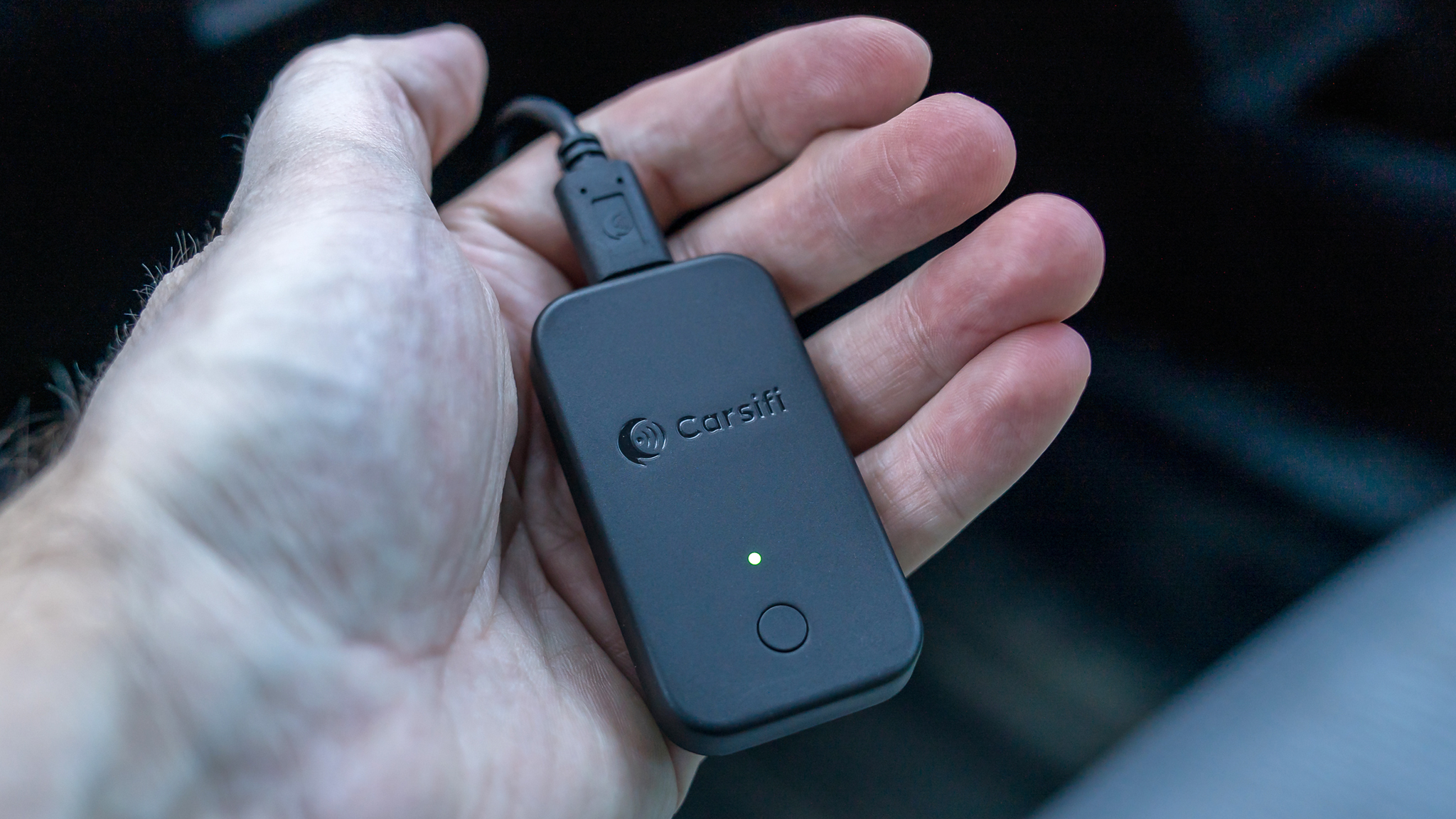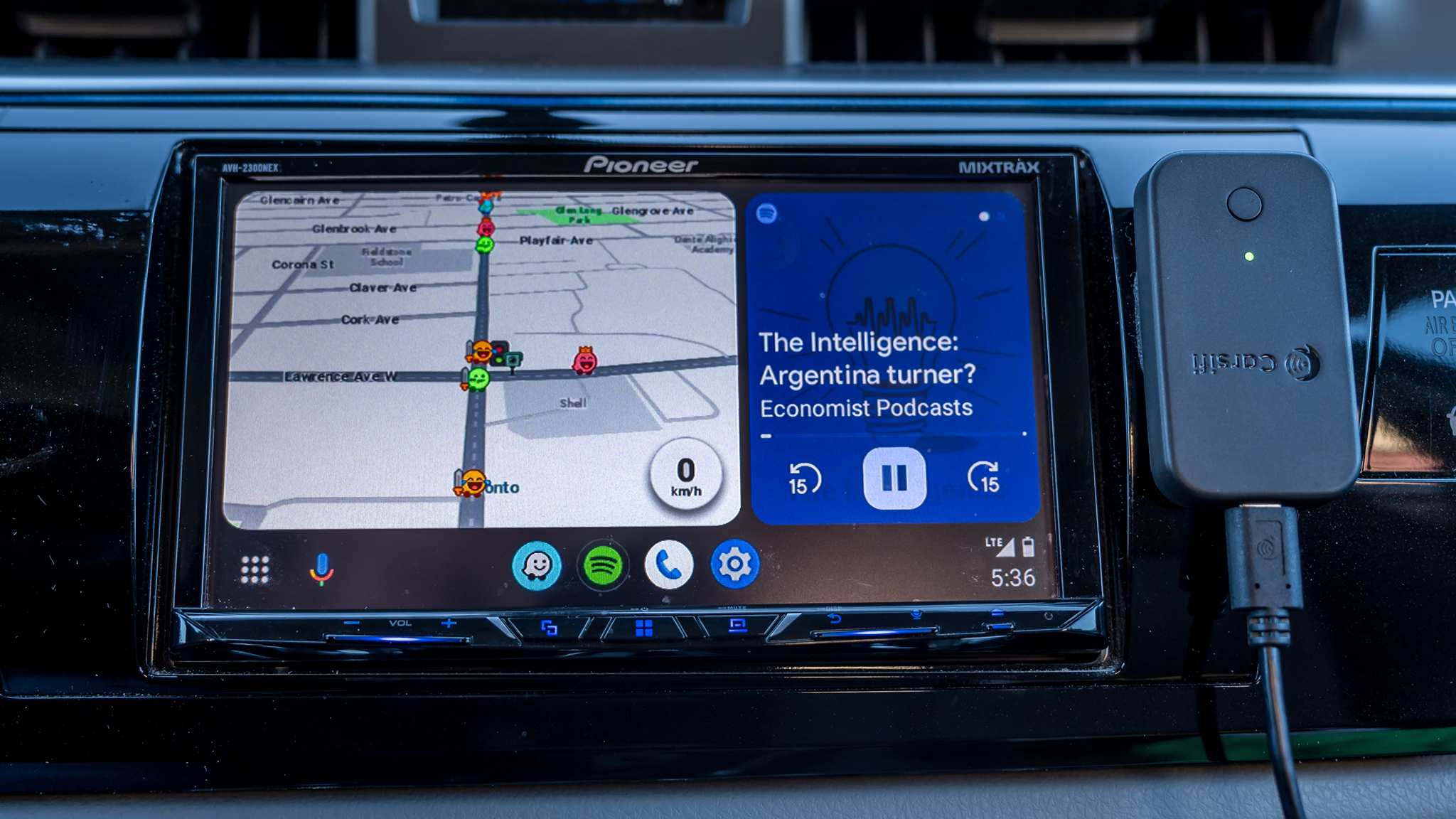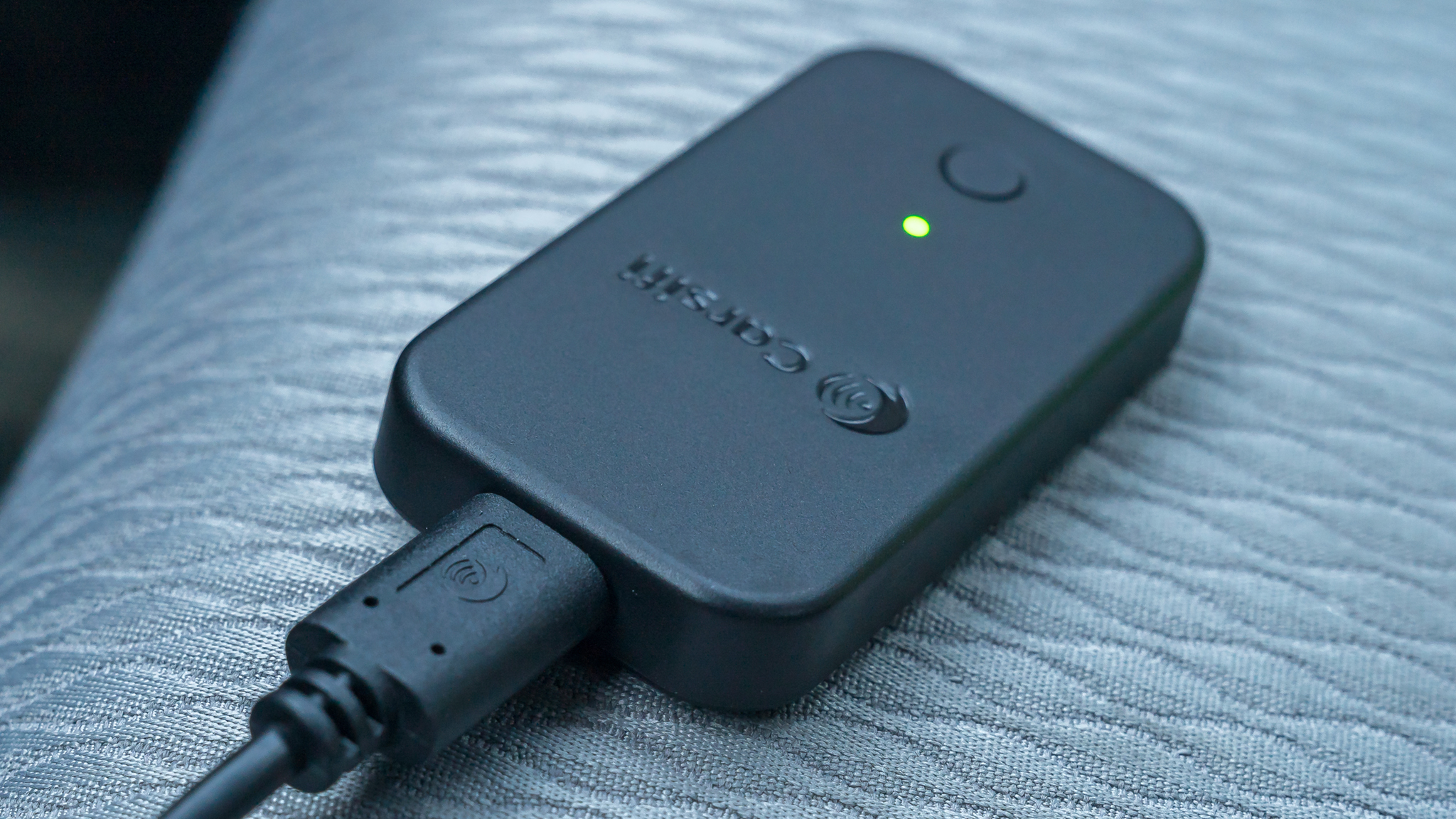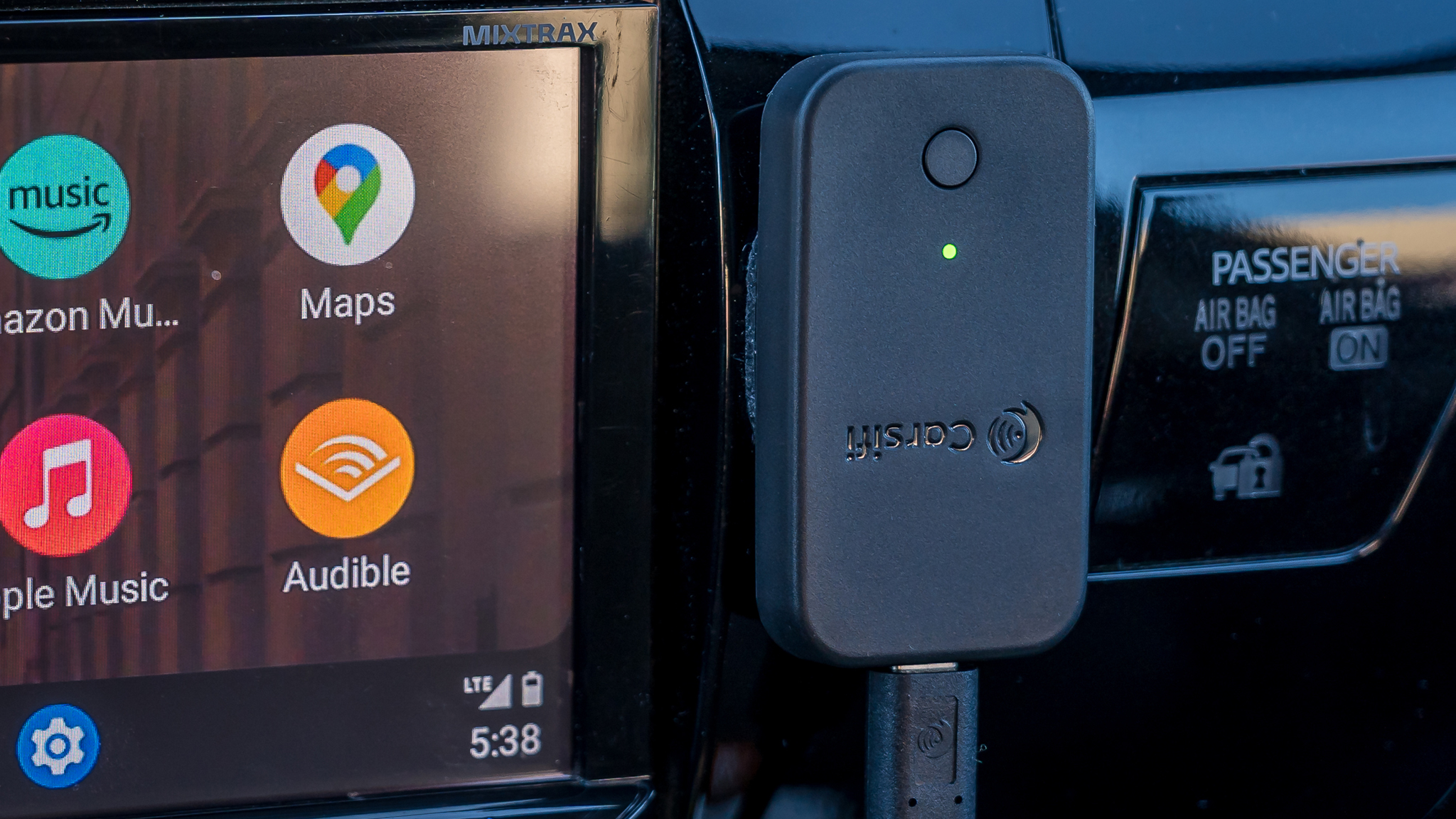
There is something liberating about simply getting into your car, turning it on, and having Android Auto launch right after Even more so when you don't have to plug the phone into any of the vehicle's USB ports to make it happen.
Wireless adapters continue to usher in a convenient way to take the cable out of the equation and leave your phone free. Carsifi does this while adding a unique element in enabling drivers to share the connection with others in the vehicle. However, uncertainty over app and product support cast a shadow over an otherwise effective device.
To start, Carsifi first started out as a crowdfunded device before it became available to anyone in the U.S., Canada, and Australia in 2022. The initial $110 price has since dropped to around $90, making it more competitive against other Android Auto adapters like the Motorola MA1. The one catch is that the device seems to only be available through Carsifi's website.
Easy setup, seconds to wireless Android Auto

Wireless Android Auto adapters come in different types, mostly aiming to perform one task, which is to ensure a stable wireless connection between an Android phone and a vehicle infotainment system. I've tested several of them, and Carsifi is among the smallest adapters I've seen thus far. Smaller in length and height than a credit card (though naturally thicker), its lightweight build and diminutive frame mean it won't feel cumbersome in the car.
Carsifi also includes two short cables, one with a USB-C port and the other with USB-A, thereby covering vehicles that might have one or the other. There's also a two-sided 3M adhesive strip in the box to mount it on the dash, or anywhere you prefer in the car within reach. It's also easy enough to use your own longer cable if you prefer something else for placement. In my case, I used the adhesive from the Motorola MA1, which I thought might hold the Carsifi better (it didn't), but ultimately tucked it away in a basin in front of the shifter.
It's possible to pair the Carsifi with other phones as well, allowing a passenger to run their Android Auto connection instead.
Setting up the Carsifi was one of the easiest processes I've experienced thus far. Plug the device into your vehicle's USB port, and it goes into pairing mode right away. Simply pairing it with an Android phone is enough to get it up and running, and the Android Auto interface appears onscreen within 30 seconds.
Other adapters or dongles sometimes require extra steps, be it setting up a Wi-Fi Direct connection or in some cases, using a dedicated app to establish everything. Carsifi is as plug-and-play as it gets, which is great for those looking for something less technical. The included instructions are barebones, so it is best to check out the full support page to learn more about what it can do.

Unfortunately, there is so much that works well with Carsifi that the app situation just feels downright confusing. The brand hasn't updated its Android app to work with Android 13 — much less Android 14. I reached out to the media relations staff and didn't get a response about software support, so I went to tech support, who told me they weren't updating it because of "Play Store rules," whatever that means. Instead, they suggested downloading an APK file of the previous app, which is easy enough to download and install but not a practical solution.
Mind you, the app doesn't do much anyway, and you don't need it to set up the device because settings are stored on the Carsifi itself rather than your phone. The problem is it's the only method available to update the firmware. Again, this is not something you see with every adapter, including the Motorola MA1, so it would just be more convenient for everyone to download an app from the Play Store and take it from there.
Sharing the connection with others

It's possible to pair the Carsifi with other phones as well, allowing a passenger to run their Android Auto connection instead. While this might not seem useful at first glance, I think it makes a lot of sense because it all works wirelessly.
Double-click the Carsifi button, and it switches over to the other phone, eventually displaying that user's Android Auto setup. In cases where a passenger wants to listen to their music, contact people, or navigate maps, it makes things much easier. For example, if you, as the driver, have a Spotify account, but the passenger is on Apple Music, Tidal, or YouTube Music, switching phones negates any cumbersome account changes on the road.
You have to be careful with double-clicking because a single click pauses Android Auto, a feature that I still can't find much use for. Also, you have to exercise some patience because it can take a good 10 seconds before the adapter switches to the other phone, leaving a brief period of silence during which the "Is it working?" questions start to arise. After a while, though, you recognize these nuances, and it becomes old hat.
More good news is that Carsifi works just fine in both factory and aftermarket systems.
Also, bear in mind that the adapter remembers the last phone it connected to, so there is no "master" device here. That's why you might want to double-click the button in case Android Auto doesn't appear for you or you forgot which phone might have been the last one.
The good news is that Carsifi works just fine in both factory and aftermarket systems. My Pioneer aftermarket head unit has no issues at all, and even better, steering wheel controls work like a charm, which doesn't always happen with all adapters.
Reliable, yet with tough competition

The clunky support behind the product gives me pause. On the plus side, tech support was highly responsive, so if you have issues, someone should get back to you, but I can't be absolutely sure it will be the same for everyone, given the strange refusal to update the app.
That said, there are plenty of Android Auto dongles and adapters out there, many of which create wireless connectivity under similar conditions. Certain nuances or functional points put some distance between them, like how AAWireless has a dedicated app and technical features that others don't. The Motorola MA1 comes from a recognizable brand, though it doesn't feel as seamless to me. Plus, it may have a successor model coming sometime this year.
Carlinkit and Ottocast are two others that continue to produce Android Auto adapters, though make sure to read any fine print about incompatibilities. They may not work with certain automotive brands or aftermarket head units. Carsifi wades through a lot of that in ways that make it appealing as a plug-and-play product.
Once you go wireless with Android Auto, it's hard to go back.
Ultimately, once you go wireless with Android Auto, it's hard to go back. Even more so if you have a wireless charger in the car. Carsifi accomplishes the key task of making the transition feel simple and painless, establishing a connection in little time, and ensuring it stays that way. Out of all the adapters I've tested, this one felt more stable than the others.
As I noted, the weird lack of support at the app level is hard to understand, and it's still only available through direct sale from Carsifi, so not something you will readily find from other online retailers. For the price, though, you do get something that works as advertised, taking away the kind of frustration you don't want to deal with on the road.







